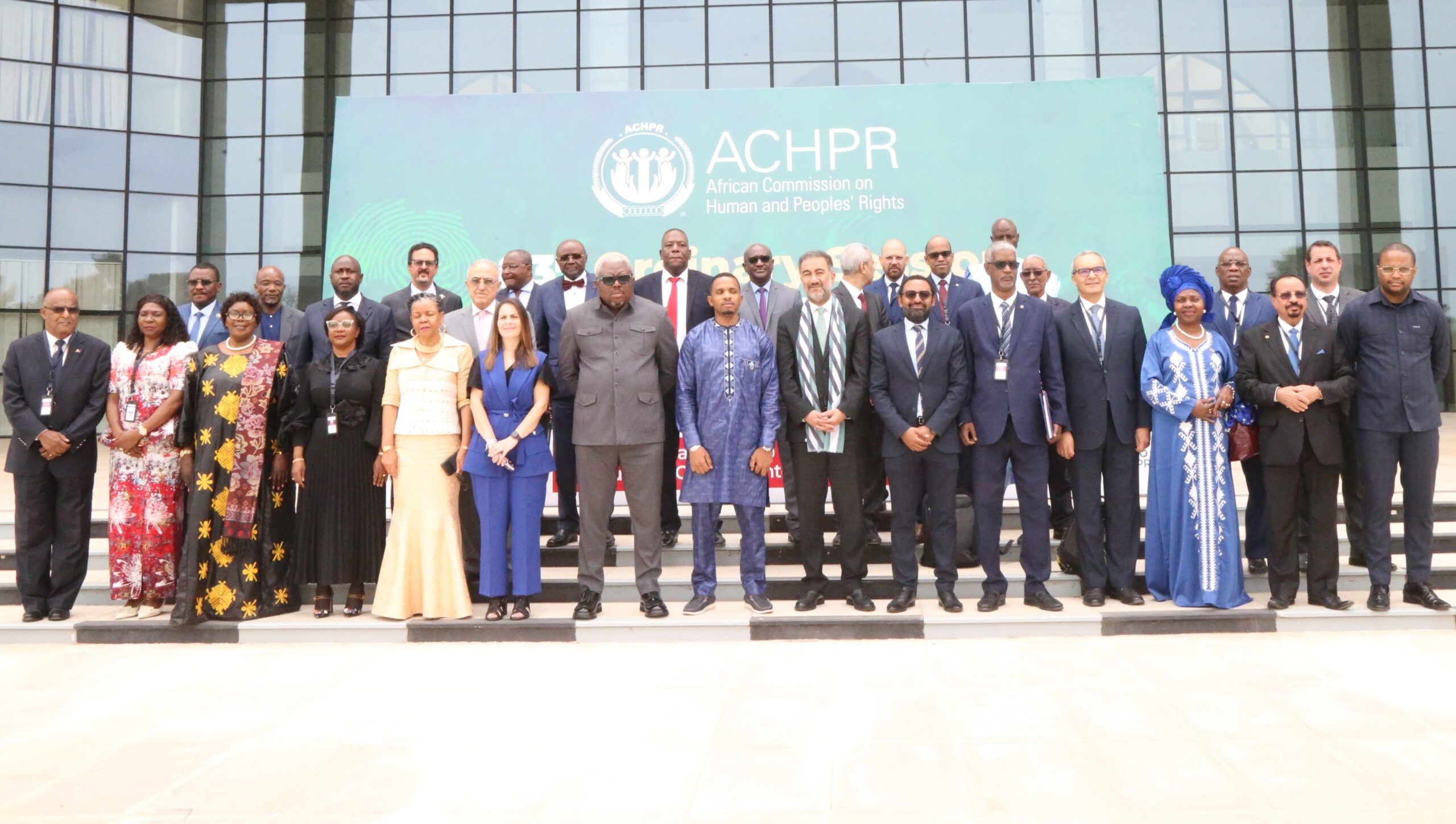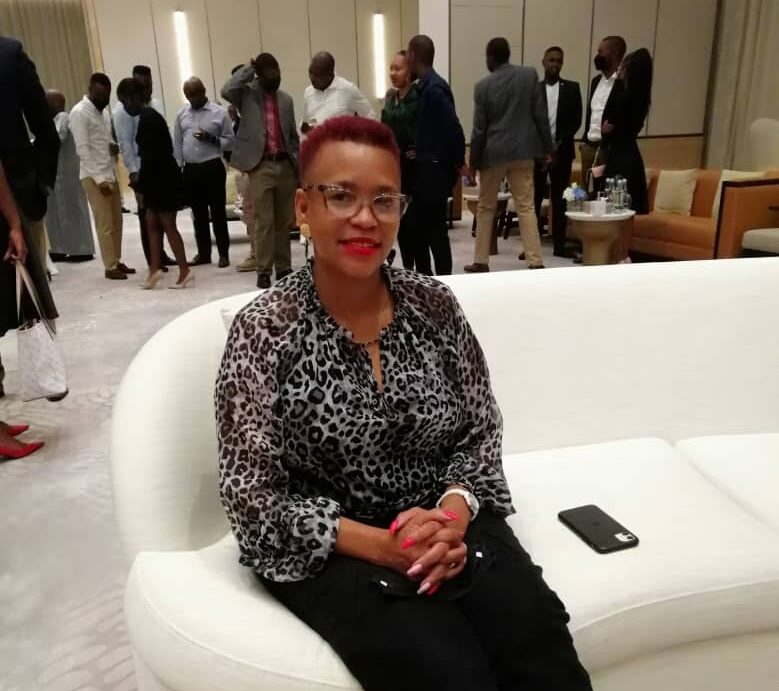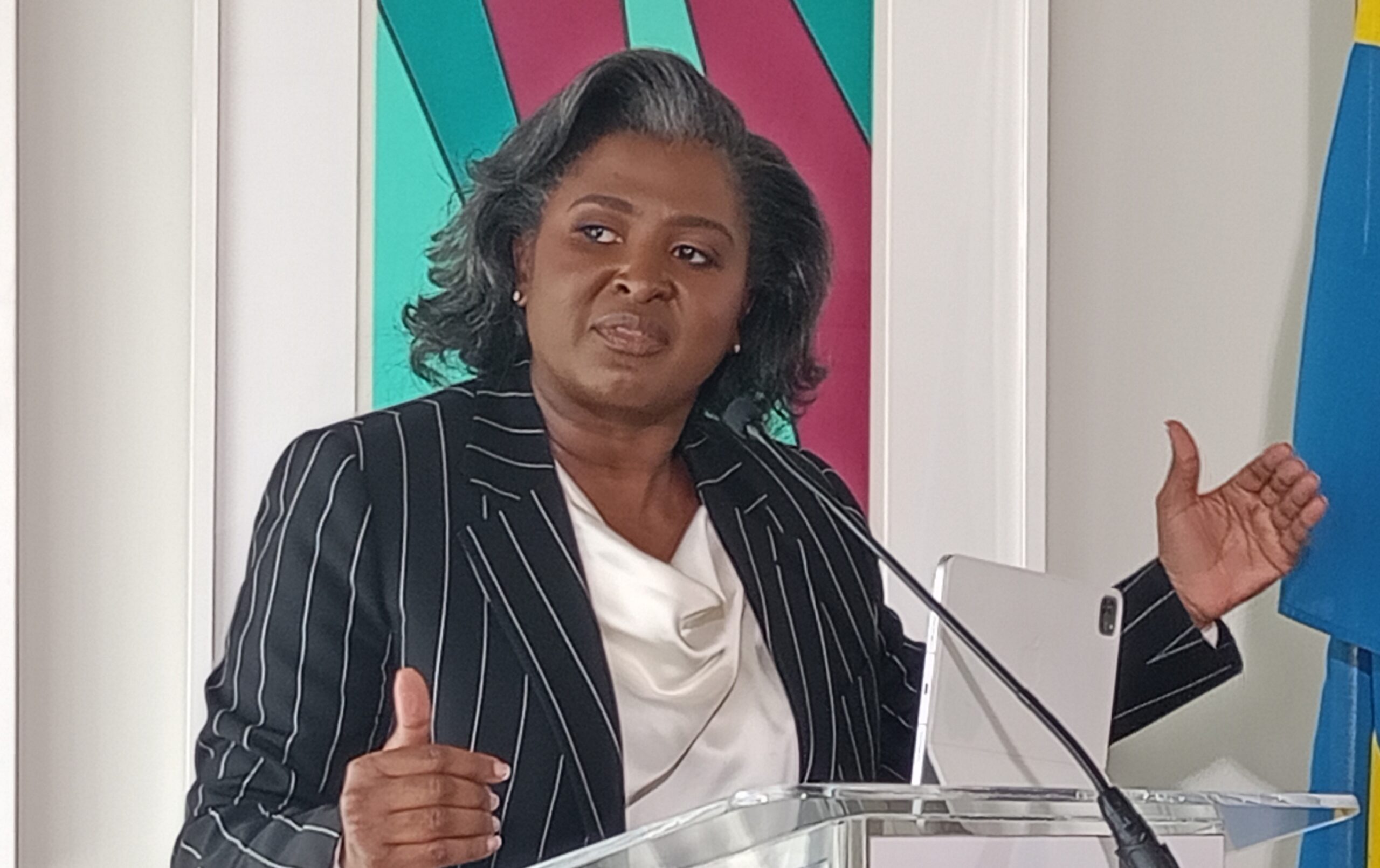
Former First Lady of Namibia, Monica Geingos speaks during a regional dialogue on advancing Sexual and Reproductive Health and Rights in Pretoria last week. Photo: Moses Magadza.
By Moses Magadza in Pretoria, South Africa
Former First Lady of Namibia, Monica Geingos, has emphasised the urgent need to champion Sexual and Reproductive Health and Rights (SRHR) for young people across East and Southern Africa.
Geingos was the keynote speaker last Thursday at a regional dialogue themed “Transforming Futures: Exploring Strategies for Accelerating Collective Regional Actions to Advance Sexual and Reproductive Health and Rights.”

His Excellency Ambassador Hakan Juholt, the Ambassador of Sweden to South Africa, Namibia, and Lesotho, hosted the dialogue at the Embassy of Sweden residence in Pretoria. He saluted the delegates for their “commitment, involvement and experience.”
“We are in this together,” he said and stressed the need to uphold “human dignity, human rights and mutual respect because we are one huge family … all vulnerable, depending on each other.”
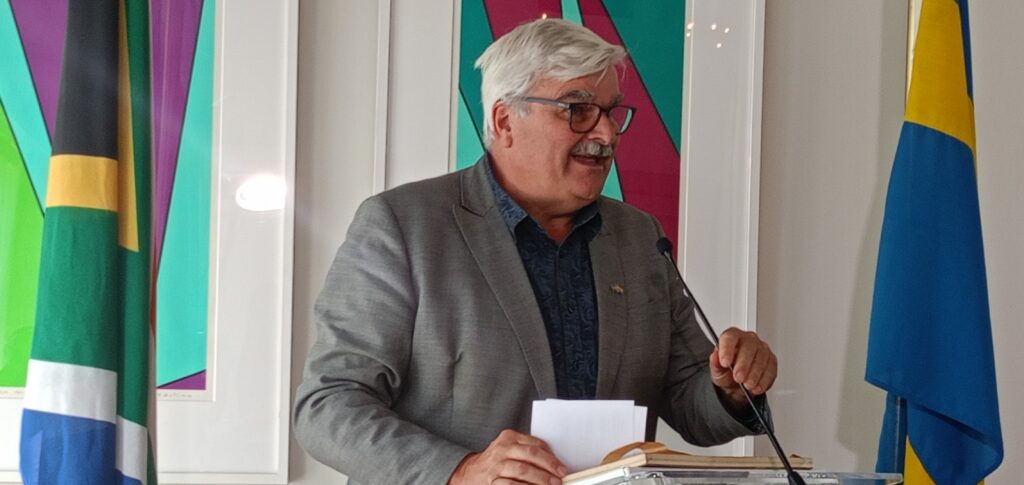
Geingos highlighted her commitment to SRHR issues drawn from personal experience and underscored the persistent stigma surrounding discussions about SRHR, noting that the political landscape often discourages open dialogue.
“Speaking as a Former First Lady, I was always confronted by accusations of wanting political office. I always told people that if I wanted political office, I would not speak on issues of sexual reproductive health and rights because that is the quickest way to de-campaign yourself,” she remarked.
She expressed concern over a regression in SRHR discourse and urged continued conversations about pressing issues like HIV, which she noted had faded from public awareness.
“There was a time when everywhere you looked, there were messages around HIV and behaviour change that kept people knowledgeable and protected. That has stopped,” she lamented.
She argued for smaller, focused discussions over large conferences that often result in dissatisfied attendees.
“These smaller conversations are the ones that will move us forward,” she asserted. She emphasised the importance of tapping into the strengths of both private and public sectors to address complex health challenges.
In her quest to understand and address the needs of young people effectively, Geingos advocated for conversations that resonate with their interests and concerns.
She shared insights from her experience in Namibia, where her team went into community spaces like bars, hair salons, and shebeens to engage youth in discussions tailored to their local contexts.
“Some issues were best addressed through drama, community theatre, or music,” she explained.
She shared lessons from an innovative approach taken in Namibia, where she established the ‘Be Free Campus,’ a holistic centre designed for youth to access essential services, including sexual and reproductive health resources, mental health support, and skills development.
“Our campus must be a safe space for everyone,” she asserted.
Geingos also pointed to successful partnerships, such as those with the Namibian Government and UNFPA, which have allowed the centre to expand its reach and services.
“It all starts with building trust and people believing in the brand that you have,” she noted, citing the successful distribution of contraceptives and the introduction of a mobile clinic as testaments to the growing demand for accessible SRHR services.
Geingos emphasised that youth should drive the conversation around their needs. She advocated for comprehensive sexuality education that, while potentially controversial, is essential for empowering the youth population.
“We have learned that service providers must be willing to have uncomfortable conversations and to compromise,” she explained.
Geingos called for united efforts to transform regional approaches to SRHR for young people, underscoring the importance of collaboration, sustainability, and scalability in initiatives designed to promote health and rights.
She said the fight for young people’s sexual and reproductive health rights was far from over, and it required collective perseverance, innovative solutions, and courageous dialogue across the region.
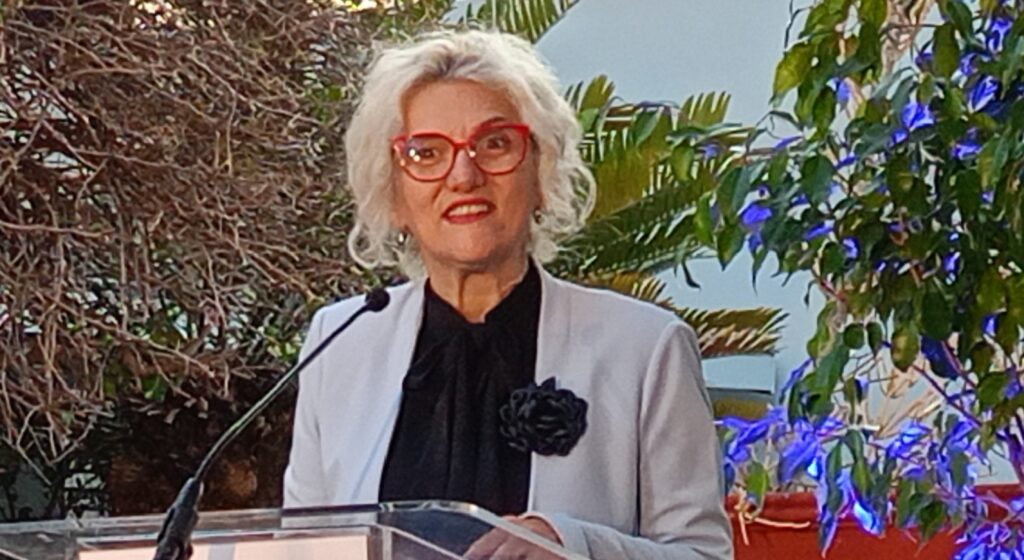
Speaking during the same occasion, Ms. Eva Kadilli, the UNICEF Regional Director, provided an overview of accomplishments of the 2gether 4 SRHR (Sexual and Reproductive Health and Rights) programme.
She said this collaborative initiative, formed by UNAIDS, UNFPA, UNICEF, and WHO in conjunction with the Swedish government, seeks to empower individuals in Eastern and Southern Africa to exercise their sexual and reproductive health rights.
Kadilli explained that the 2gether 4 SRHR programme was launched in 2018 and had garnered significant support from the Government of Sweden, with a financial commitment exceeding USD 100 million slated by 2027.
She emphasised the importance of this partnership and noted that despite the challenges posed by the COVID-19 pandemic and other humanitarian crises, the programme had made strides in improving key SRHR indicators.
She said since its inception, the region had seen declines in maternal mortality, new HIV infections, and adolescent birth rates.
Ms. Kadilli highlighted that the 2gether 4 SRHR had created a cohesive regional collaboration that embodies the “Delivering as One” principle among UN agencies, regional communities, and civil society. This partnership had amplified voices for SRHR, particularly those of adolescents and young people.
She explained that the programme had fostered increased public discourse and understanding of SRHR issues, leading to the enhancement of over 60 laws and policies across the region. This includes a focus on inclusivity and combating stigma.
A mechanism for accountability had been established, utilising scorecards and community-led monitoring to track progress on SRHR indicators.
Ms Kadilli revealed, also, that the 2gether 4 SRHR had ensured that health services meet the diverse needs of populations, including adolescents, key populations, and persons with disabilities.
Peer-driven models had been implemented across multiple countries, providing vital support and mentorship to young mothers and key populations.
She said the programme had prioritised maintaining SRHR services during times of crisis. Following a comprehensive assessment of service availability during the COVID-19 pandemic, countries had developed action plans aimed at ensuring service continuity in future emergencies.
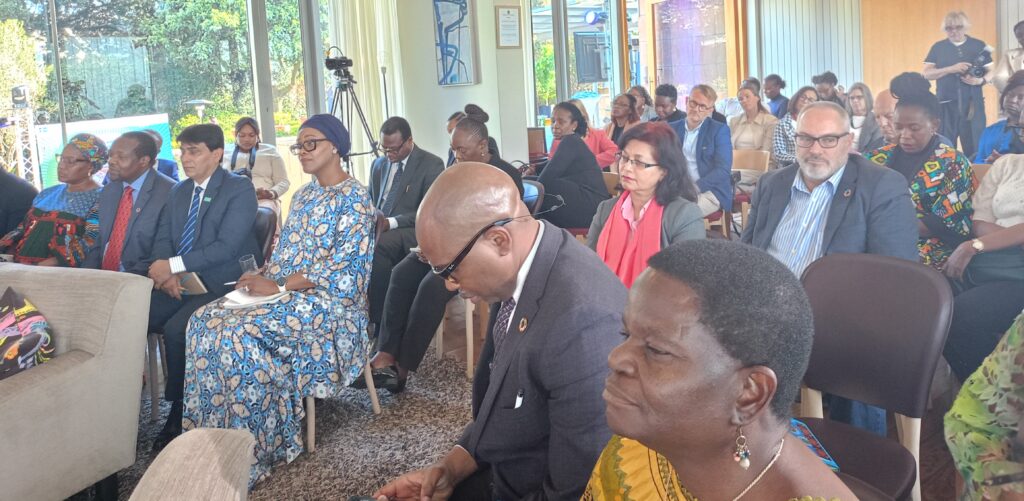
Delegates to the roundtable dialogue included Ms. Anne Githuku-Shongwe, Regional Director: UNAIDS; Ms. Lydia Zigomo, Regional Director UNFPA; Dr. Matshidiso Moeti, Regional Director for WHO-Afro who joined in virtually and a representative of the Secretary General of the SADC Parliamentary Forum. The SADC PF is implementing a SRHR, HIV and AIDS Governance Project with funding from SIDA. The Project seeks inter alia to build the capacity of Members of Parliaments to review and propose changes to laws; ensure safety of basic products in the context of universal healthcare coverage; and promote gender equality, including in climate action and eliminating sexual and gender-based violence.







